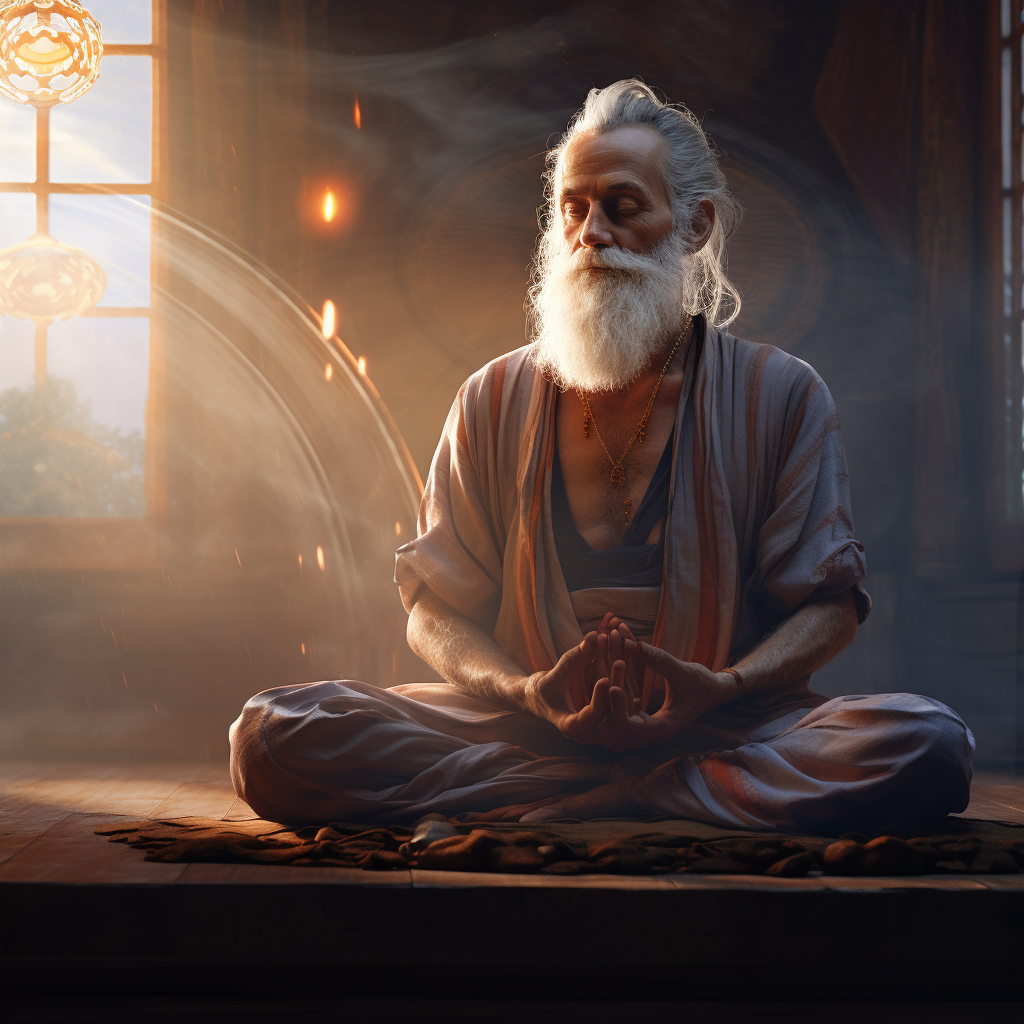Is it possible that you could have been born a creature other than a human?
All the major world religions use some form of a carrot-and-stick approach to motivate good behavior.
The carrot is a reward for good behavior, such as going to heaven, gaining favor with God, being reborn in comfortable circumstances, reincarnation in a Pure Land, or escaping the cycle of rebirth entirely.

The stick is a punishment for bad behavior, like going to hell or being reborn as an animal.
These methods have varying degrees of success, based mostly on whether or not someone accepts the beliefs of that religion. If people don’t accept the beliefs, neither the carrot nor the stick have much force.
Historically, religious zealots would kill non-believers, ostensibly to save their souls. Apparently, God needs a worldly stick when the imaginary one doesn’t work.
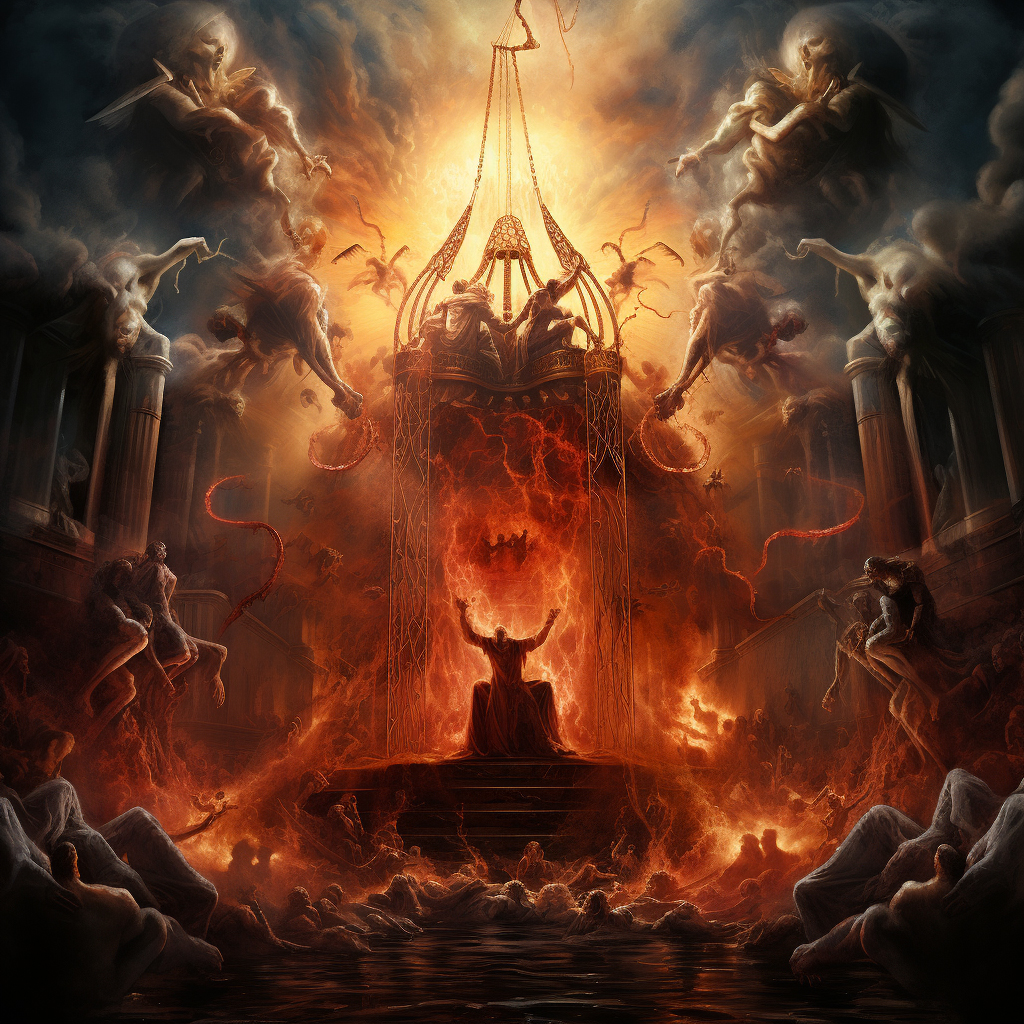
The value of human life
One of the foundational beliefs in Judaism and Christianity is that humans are created in the image of God (Genesis 1:26-27). Christians believe that God loves each individual deeply and has a specific purpose for every human life.
The Quran explicitly states that Allah created humans with His own hands (Quran 38:71) and breathed His spirit into them (Quran 32:9), signifying a special and unique status among all of creation.
Both Christianity and Islam have an afterlife with potential rewards and punishments based on earthly behavior, but they don’t see life as cyclical. It’s once and done, so people better get it right the first time.
Both Hinduism and Buddhism originated in India, and both accept reincarnation or rebirth as a fundamental truth. For them, humans get unlimited do-overs.
However, based on what they did in this life, they may or may not take rebirth as human. If they are really bad, they may come back as a lower life form and endure the unique sufferings those life forms endure.
Lower rebirth is hell incarnate. To fully understand the potential punishments for non-virtuous behavior, Buddhists and Hindus are taught the possibilities for rebirth or reincarnation in the lower realms.
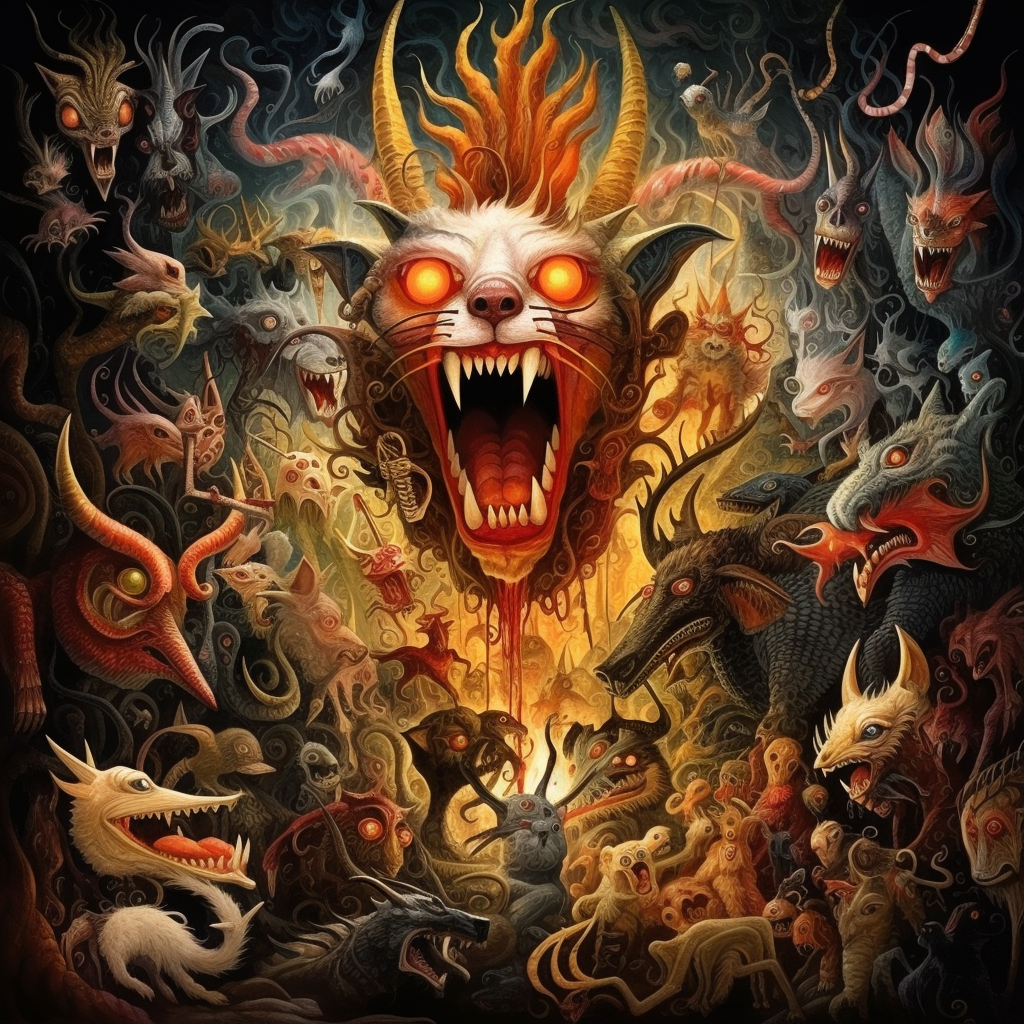
For Buddhists, besides motivating good behavior, the concept of taking rebirth in the animal realm prompts believers to consider how precious and rare their human life is, which is a plus.
See: Tibetan Buddhist Lamrim: Your Precious Human Life
Whereas the Western religions posit each human is special to God, and, thereby, precious and important, Buddhism posits that each human incarnation is precious because it could have been otherwise; you could have taken rebirth as an animal.
What are the dangers of lower rebirth?
What it’s like to be a bat? While it may sound like fun to fly, the life experience of bats or any wild creature is one of unending anxiety, searching for food, and enduring the fear of sudden violent death.
Further, life forms without self-awareness lack the mental capacity to understand virtue or engage in spiritual practices. It’s difficult to learn and earn their way back to being human once they’ve fallen to the lower realms.
How would you like to come back as a veal calf, raised in darkness, suspended in the air so your feet never feel the Earth, tormented and uncared for, raised for slaughter so that your flesh can be served to humans as a luxury dinner?
I wouldn’t want that.
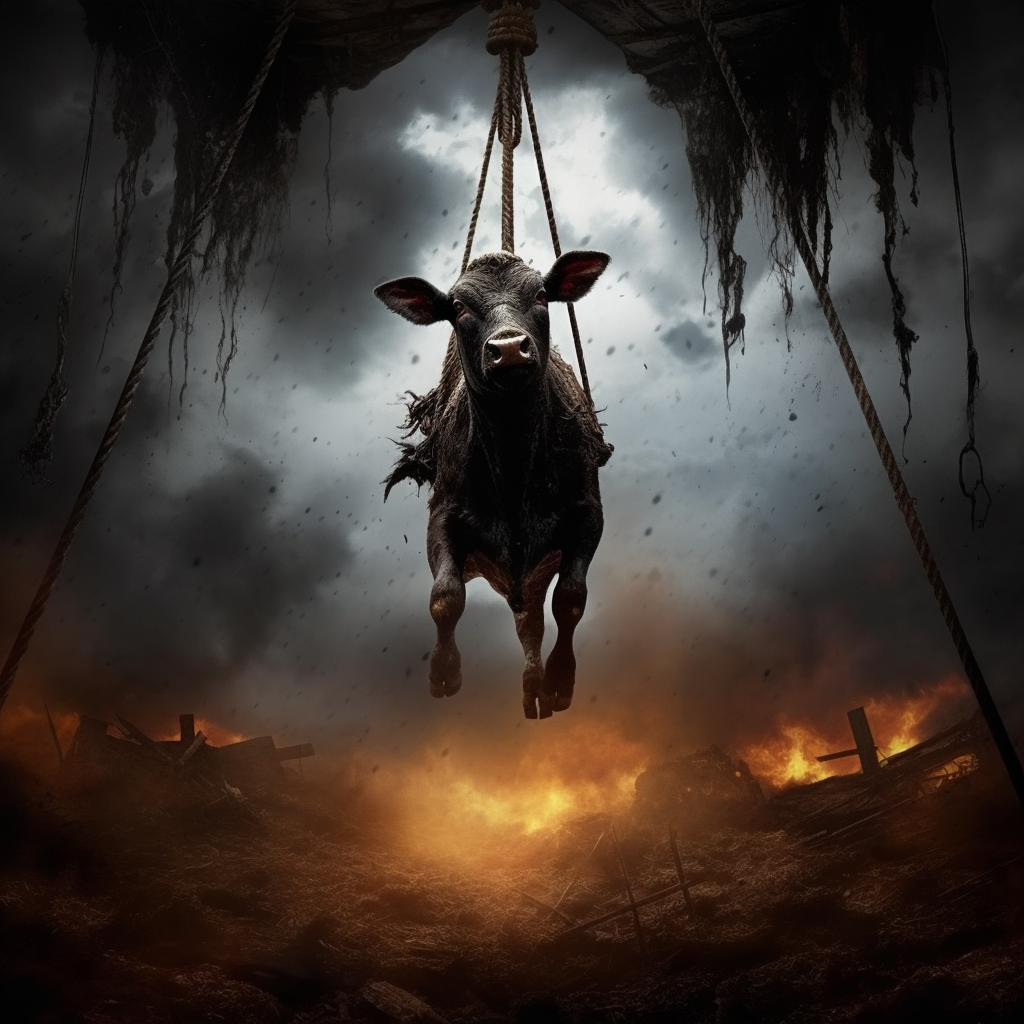
All creatures past mollusks, in evolutionary terms, have some level of subjective experience.
With the exception of great apes, dolphins, magpies, and a few others, most animals lack self-consciousness, but that doesn’t mean they lack awareness of suffering.
Pain is pain. Death is undesirable. Every animal knows this, and they struggle against the inevitable.
If rebirth as an animal is a possibility, it’s one most people would rather avoid.
Tibetan Buddhist Lamrim teachings
The Tibetan Buddhist Lamrim teachings on the dangers of lower rebirth emphasize the potential consequences of bad behavior. A lower rebirth is earned through unwise choices and non-virtuous behavior—something within each person’s control.
Below is a summary of these teachings:
- Three Lower Realms: Lamrim’s teachings describe three lower realms of existence: the hell realms, hungry ghost realms, and animal realms. Rebirth in any of these realms results in intense suffering and few opportunities for spiritual growth to escape.
See: Hungry Ghosts and the Magic Wish-Fulfilling Tree
- Negative Karma: Karma is the law of cause and effect. Negative actions, such as harming others, lying, or engaging in unwholesome behavior, create negative karma that leads to rebirth in these lower realms. Santa Claus leaving coal in your stocking is a warning. Conviction for a crime is a warning. An unrepentant death will lead to lower rebirth.
- Intense Suffering: Life in the lower realms is marked by intense suffering, such as extreme heat and cold in the hell realms, insatiable hunger and thirst in the hungry ghost realms, and the instinctual nature of animals who endure the apparent cruelty of nature.
- Lack of Spiritual Progress: Rebirth in the lower realms hinders spiritual progress because beings in these realms are preoccupied with their suffering and basic survival needs.
- Motivation for Virtue: The fear of lower rebirth motivates believers to act with a virtuous mind and heart while refraining from negative actions.
- Repentance and Purification: In order to avoid negative consequences, believers must recognize and purify negative karma through practices like confession, purification rituals, and making amends.
- Mindfulness of Consequences: Practitioners must maintain mindfulness of the potential consequences of their actions, make ethical choices, and avoid actions that lead to lower rebirth. Ignorance doesn’t spare the wicked.
- Compassion for Beings in Lower Realms: Believers cultivate compassion for those who are in the lower realms. This compassion motivates practitioners to benefit all beings.
- Seeking Refuge: Lamrim’s teachings suggest taking refuge in the Three Jewels (Buddha, Dharma, Sangha) as a means of protection from lower rebirth and as a source of guidance on the spiritual path.
Lamrim’s teachings on the dangers of lower rebirth underscore the potential consequences of poor choices and bad behavior. Further, they provide a greater appreciation for the preciousness of human life.
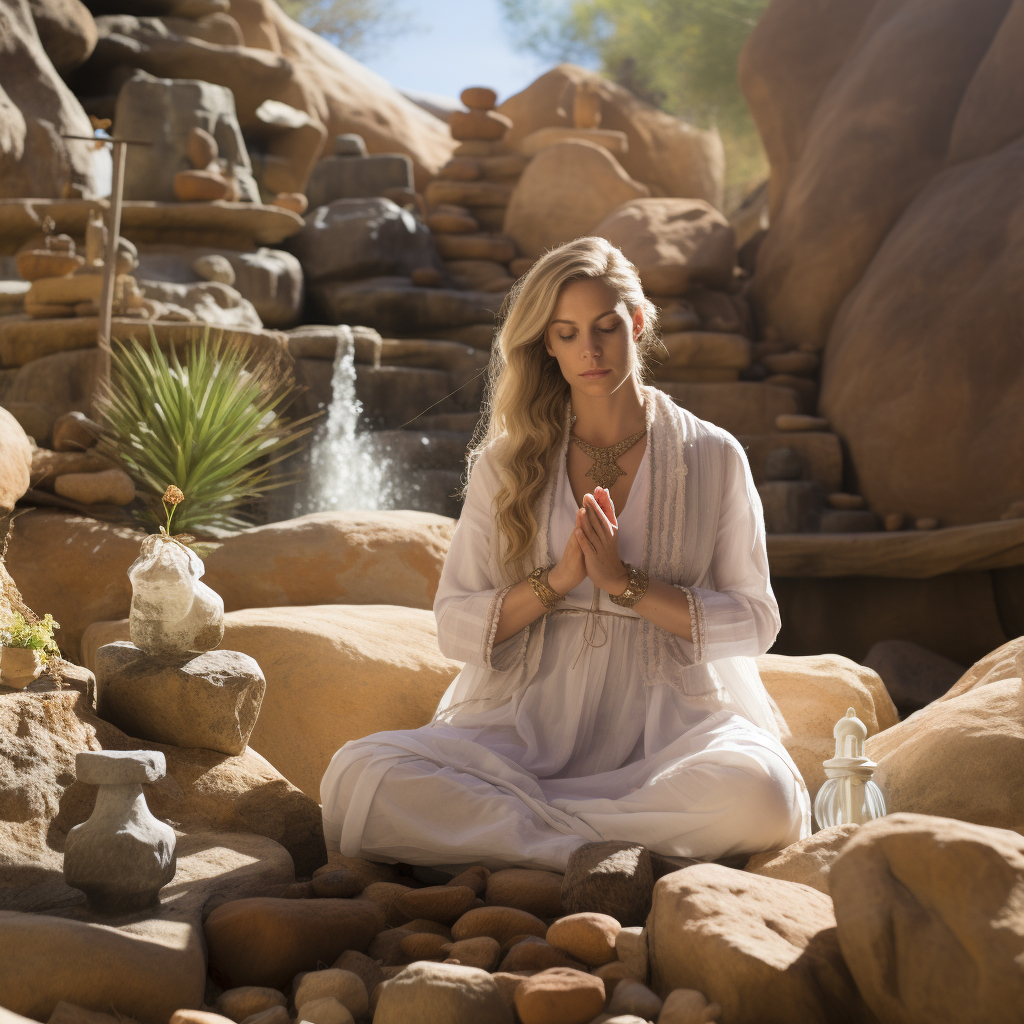
Meditation on the Dangers of Lower Rebirth
For the most part, Buddhism is supported by modern neuroscience. However, this is one meditation where the two differ.
See: Emptiness of Self: The Key to Buddhist Enlightenment
Buddhist notions of rebirth posit that the mind exists independently of the body, which modern neuroscience fails to support. However, if one lives as if rebirth were true, the positive motivations are the same.
Besides, any supposition about what occurs after death is completely unsupported by any data. Claims about near-death experiences, like claims about remembering past lives, are interesting, but most likely delusions of the mind. Nobody has truly died and brought back evidence about what actually happened. In short, people are free to believe whatever they want about an afterlife because no one can prove otherwise.
For this meditation, suspend your disbelief and imagine that your conscious mind leaves your body and takes rebirth sometime later in a new body. Whether that body is a human, a hungry ghost, a hell being, or an animal depends on how much you practiced virtue and how little you acted selfishly against others.
Contemplation
In addition to the points raised above, consider the following first-person narrative:
When I die, my mind must leave this body behind and find a new body to inhabit. I have no choice but to remain behind and no choice about where to go. My Karma will direct me, and my behavior in this life will determine my destination. If my actions were very negative, I would take rebirth in hell; if my actions were moderately bad, I would take rebirth as a hungry ghost; and if my actions were more bad than good, I would take rebirth in the animal realm.
Unless I purify my negative Karma through practicing sincere confession, feeling regret for past actions, and practicing virtue, my negative actions will continue to trouble me in my next life.
Given these Truths, if I were to die tomorrow, would I end up in the lower realms? Perhaps I should do something about that.
Meditation
The contemplation above should generate a strong fear of taking rebirth in the lower realms. This feeling of fear is the virtuous object of this meditation.
Hold that fear without letting your mind diminish it in any way. Make the fear as strong as possible, without becoming paranoid. You are seeking proper motivation, not paralyzing fear.
If this practice is done properly, your motivation to avoid acting in ways that harm others becomes very strong, and your desire to help people increases significantly.
When you think about it, people do bad things because they believe they can get away with it. If you don’t believe you can avoid the consequences, you don’t do bad things. It isn’t worth it. The payoff is always less than the punishment.
Religions invented the carrot-and-stick of heaven and hell for a good reason. Even if you don’t believe this is an ontological reality, acting as if they are true serves you, and everyone around you as well.
